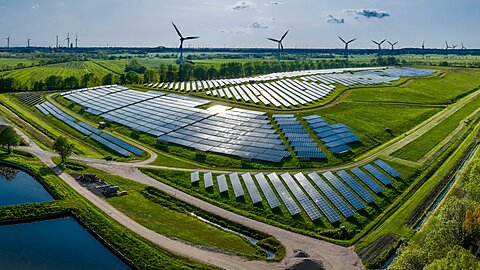Adam N. Michel and Joshua Loucks
The Inflation Reduction Act (IRA) was pitched as a climate solution. In practice, it turned the tax code into a multi-trillion-dollar energy entitlement program, creating subsidies without caps, sunsets, or accountability. The recently passed House Ways and Means Committee tax bill repeals eight of the IRA credits, phases out five, and keeps or expands several others.
The House tax bill is a modest step toward scaling back the IRA green energy subsidies, but it is not aggressive enough. To effectively end the damage caused by the IRA, lawmakers need to cut deeper and faster.
Where the House has fallen short, the newly released Energy Freedom Act offers a more principled approach by repealing more than 20 green IRA energy tax subsidies by the end of the year. The bill was introduced by Senator Mike Lee (R‑UT), the Chairman of the Committee on Energy and Natural Resources, along with Representatives Josh Brecheen (R‑OK) and Chip Roy (R‑TX).
Full repeal of the IRA isn’t radical; it is the only responsible path forward to deliver what President Trump and congressional Republicans campaigned on: energy independence, reliable energy, and less spending.
Fiscally reckless, environmentally damaging
Conservative estimates, based on those completed by government scorekeepers, put the cost of the IRA’s energy tax subsidies at $852 billion between 2026 and 2035. That’s up dramatically from the original 10-year cost projection of $270 billion.
A recent Cato Institute paper confirms that the IRA’s energy credits are far more expensive than initially projected. Thanks to provisions like direct pay (cash payments in lieu of tax benefits), tax credit transferability, and emission level phase-out triggers, many of these subsidies now function like open-ended automatic entitlements. And that’s why over the next 25 years, the IRA credits are expected to cost up to $4.7 trillion.
The result of all these lucrative tax credits is a clean energy policy driven more by subsidy maximization than emissions reduction or environmental mitigation. Many firms are designing projects around the tax code instead of environmental outcomes, leading to delays, cancellations, and high costs. By some estimates, the subsidies will cost between $2 million and $7 million per job created, with nearly 40 percent of Biden-era subsidized manufacturing projects already delayed or canceled.
The cost of emissions reductions is also underwhelming, with an estimated CO₂ abatement cost of between $224 and $535 per ton. That’s multiple times higher than what would have passed a cost-benefit test under the Biden and Obama administrations’ estimates of the social cost of carbon. Not to mention the unique environmental damages imposed by subsidized wind turbines, solar panels, batteries, and electric vehicles.
Partial repeal leaves door open for revival
The House tax bill’s approach to scaling back the IRA subsidies by phasing many of them out rather than a full immediate repeal leaves the door open for their potential return. Shuting Pomerleau estimates that the House tax bill only repeals about 60 percent of the ten-year cost of the IRA credits.
The bill repeals many credits immediately, including those for electric and other clean vehicles, alternative fuel refueling properties, residential energy efficiency, and clean hydrogen. It adds new restrictions and eventually phases out more quickly than under the current law, several of the most popular and costly credits. These include credits for electricity production and investment, nuclear power, and advanced manufacturing. The bill expands the clean fuel production credit and leaves untouched the carbon sequestration credit. Table 1 summarizes current law and proposed changes.
Allowing the most expensive subsidies to linger for another half-decade or more invites a rush to cash in before they expire, worsening malinvestment and strengthening the special interests that will push to revive them under the next administration.
Full, retroactive repeal of the IRA is the only way to end the cycle of failed green industrial policy that builds uncompetitive industries on the shaky foundation of federal tax credits. Uncompetitive industries then require the continual renewal of tax credit subsidies. The Energy Freedom Act would end this cycle by terminating the IRA subsidies this year.
Subsidy-dependent industries don’t need a long offramp; they need a clear signal that the taxpayer-funded gravy train is over. Full immediate repeal makes clear that markets, not handouts, will drive America’s energy future.

